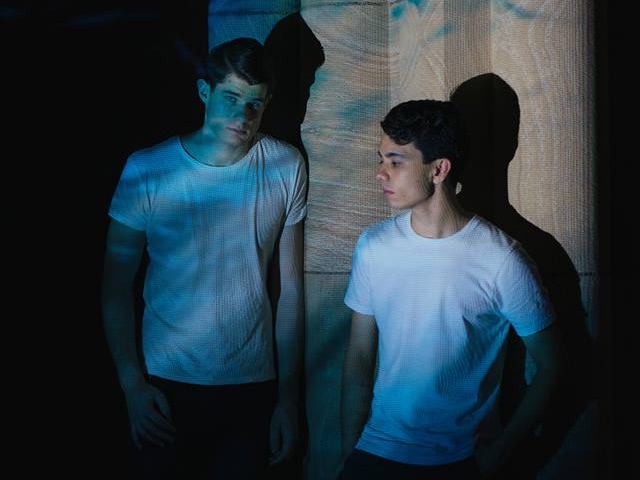Live Review
Argo: Encore @ UQ School of Music

If your New Year’s resolution was to learn more about electronic, experimental or contemporary classical music, there’s been no better time to be in Brisbane than now.
Argo is the newest in a series of classically trained local groups composing intriguing, exploratory audiovisual sets. Like Topology, Nonsemble, Kupka’s Piano or Sampology, Argo are native sons of the Sunshine state writing music for computer and human accompaniment. In a sense they are all serious musicians. In another sense they are all very witty. The right words to evoke this fresh new music change with each formulation, but suffice it to say it’s always a great way of spending time.
Argo began its 2016 season with a lunchtime concert at the UQ School of Music. Held every week at 1 pm on a Thursday, this free concert series is a great tip for lovers of classical music who want to opt out from the ads for luxury cars that are obligatory in concert hall programming these days.
The afternoon of the Argo concert at UQ the sun was at its gruelling worst outside. A lucky hundred sheltered in a darkened recital room, settling into the first ‘song’ of a recording of heavy tropical rain coming out of the speakers and a video of a distant storm in the night sky. As the heat and the rush of getting there subsided, the mood changed to one of full concentration.
Imagine a movie with the hierarchy of senses reversed, where the main show is the music and the visuals play a secondary role, there to help move the music along. There is no narrative here, neither within the song nor in the progression from song to song. Instead, a series of soundscapes one inhabits for the duration of the ‘song’. This is no glorified soundtrack Argo are playing: this is a careful arrangement of sound effects, field recordings, music for violas, violins, winds, a piano without a player, and an electronic drum kit that sometimes sounds like a xylophone. There were two composers and six musicians on stage in Encore at UQ, and the number and instrumentation changes for each gig they play.
“The reason I like electronic music is because all the sounds are divorced, from all connotations and preconceptions. This pushes the abstract nature of music to the limit, allowing the creation of sounds as empty and connectionless sonorities, ready to be filled with whatever the listeners sees when their eyes shut,” says one of the two composers behind Argo, Ben Heim.
But I kept my eyes open. Having something to look at while you listen helps you get in the music. I reckon this is a 21st century sensibility meeting older musical traditions. To have to sit for an hour in a well-lit recital room looking at half a dozen working at their instruments is close to sensory deprivation for us non-con, short-attention-span kids. The projected video sequences were a mix of assorted abstract imagery and familiar stock video (coloured dyes in water; crashing waves filmed from beneath). The most riveting of these sequences was the cascading architectural forms that accompanied the String quartet no. 2 in E minor, by Connor D’Netto, the second composer behind the ensemble. Argo’s visuals worked well, and I’ll be looking forward to their next gigs to see where they take the visuals.
There were no singalongs on this gig (experimental musical doesn’t often go there), but the audience loved it. By now it’s clear that given the whole images + sounds thing they have going on, Argo do performances rather than concerts proper. Which is to say that you really have to be there to get it. Those in the know will find quasi-neoclassical and post-minimal influences in Argo’s music. If those terms don’t mean much, it’s enough to say they create new ways of experiencing music. They describe it as immersive art music. Argo’s music is not guaranteed to move you to tears like classical music is meant to, but it’s certain to make you stop and think and listen. I definitely recommend it.
Since the UQ School of music concert in March, Argo has been mixing the old and the new in some unusual locales. They’ve played with the Queensland Symphony Orchestra at the Brisbane Powerhouse, with the Brisbane Chamber Choir at St John’s Cathedral, and even at one our city’s oldest buildings, the Spring Hill Reservoirs, which has recently started being used as a performance space for theatre, opera and music.
- Carolina Caliaba